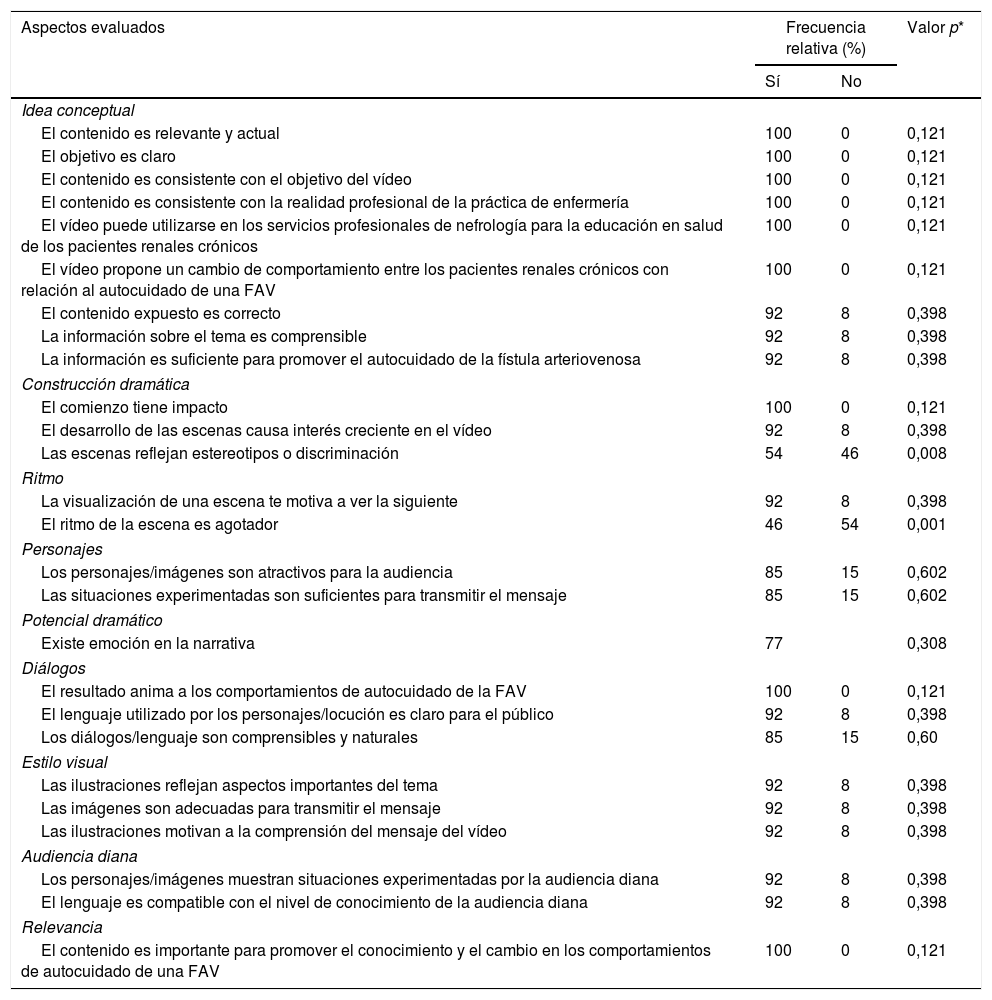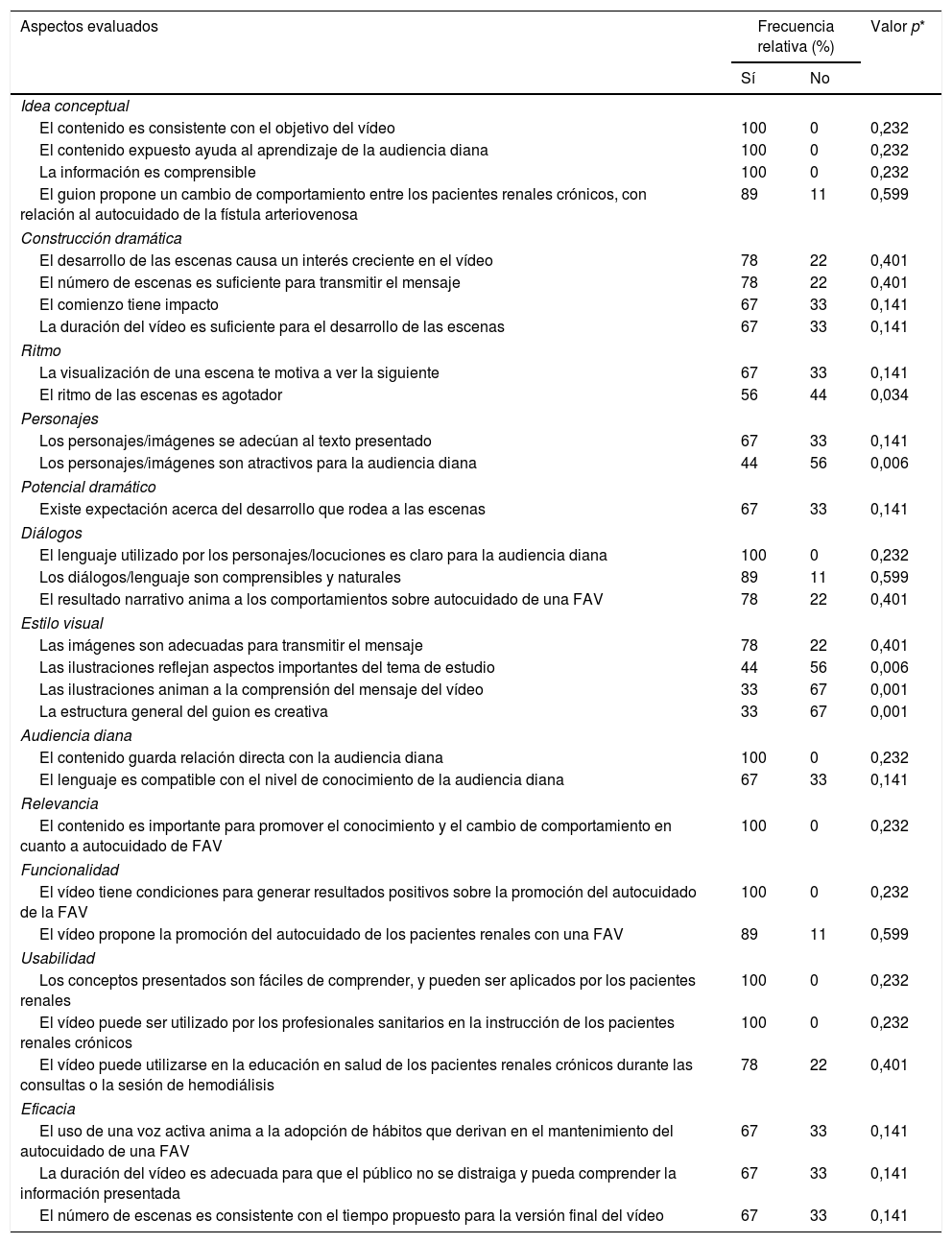Validar el contenido del guion de un video educativo para promover el autocuidado de la fístula arteriovenosa en los pacientes renales crónicos, con enfermeras y comunicadores sociales.
MétodoEstudio metodológico que construyó y validó un video educativo. En primer lugar, las demandas de autocuidado se identificaron por medio de una revisión de la literatura sobre autocuidado con fístula arteriovenosa. A continuación, la construcción del video siguió los pasos de preproducción, producción y posproducción. La validación del contenido del video ocurrió en la fase de preproducción y contó con 22 jueces de enfermería y profesionales de los medios. El estudio fue aprobado por el Comité de Ética en Investigación, bajo el Certificado de ética: 61705516.0.0000.5208.
ResultadosLos siguientes ítems presentaron una evaluación negativa de los jueces: las escenas descritas reflejan estereotipos o discriminación (p = 0,008), el ritmo de las escenas es agotador (p = 0,001/p = 0,034), los personajes/imágenes son atractivos para el público (p = 0,006), las ilustraciones reflejan aspectos importantes del tema en el estudio (p = 0,006), las ilustraciones motivan la comprensión del mensaje de video (p = 0,001) y la estructura general es creativa (p = 0,001).
ConclusiónEl video educativo fue considerado válido por jueces de enfermería y profesionales de los medios de comunicación, para promover el autocuidado de la fístula arteriovenosa en pacientes renales.
To validate the content of the script of an educational video to promote self-care with arteriovenous fistula in chronic renal patients with nurses and social communicators.
MethodMethodological study that constructed and validated an educational video. Firstly, the demands of self-care were identified through a literature review on self-care with arteriovenous fistula. Then the construction of the video followed the steps of pre-production, production and post-production. The script's content validation occurred in the pre-production phase and counted on 22 nursing judges and media professionals. The study was approved by the Ethics Committee in Research, under opinion 61705516.0.0000.5208.
ResultsThe following items received a negative evaluation from the judges: “The scenes described reflect stereotypes or discrimination” (p = 0.008) and “The pace of the scenes is tiring” (p = 0.001/p = 0.034), “The characters/images are appealing to the audience (p = 0.006), “The illustrations reflect important aspects of subject under study” (p = 0.006), “The illustrations promote the understanding of the video message” (p = 0.001) and “The general structure is creative” (p = 0.001).
ConclusionThe educational video was considered valid by the nursing judges and media professionals to promote self-care with arteriovenous fistula among renal patients.








